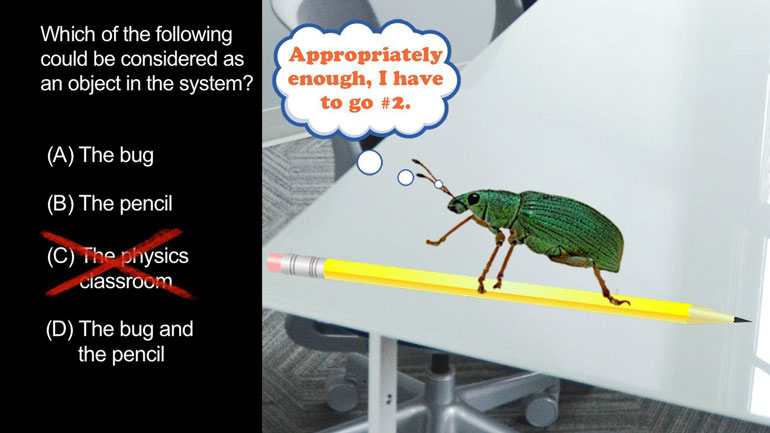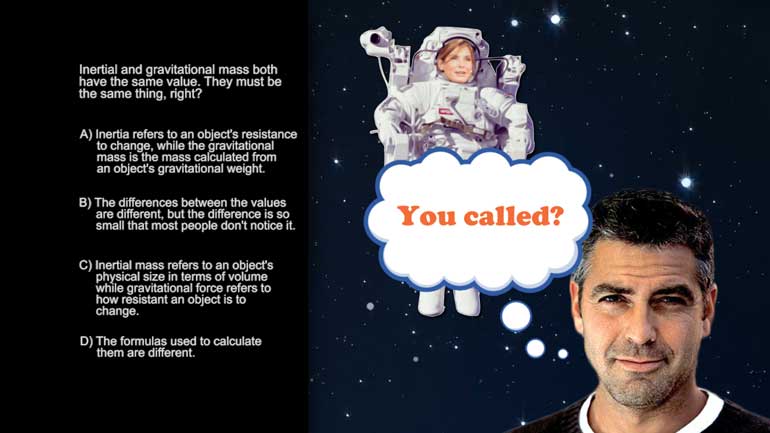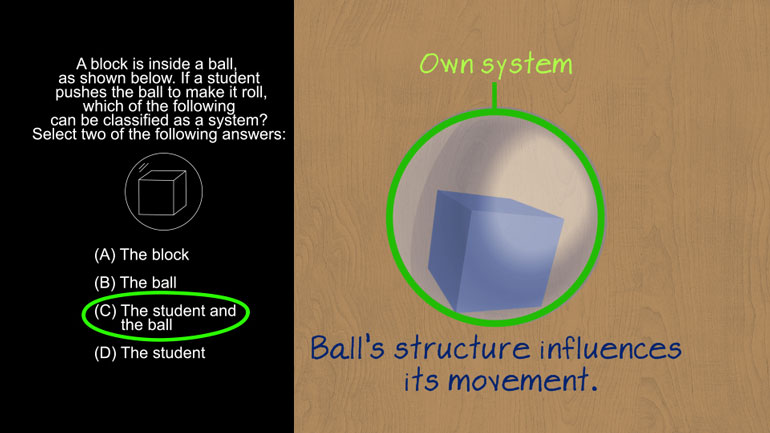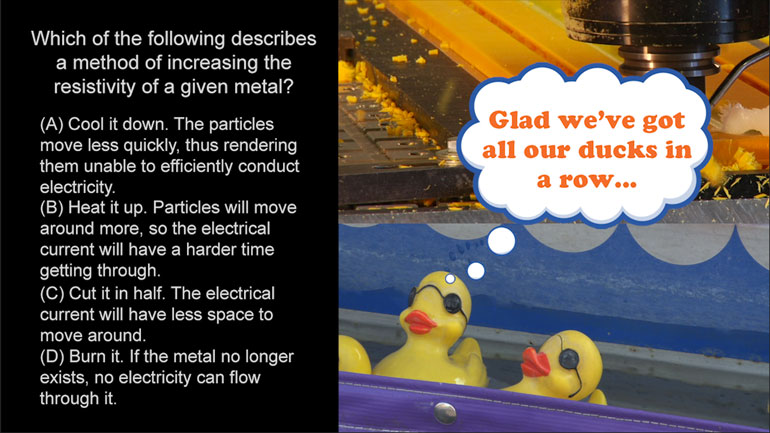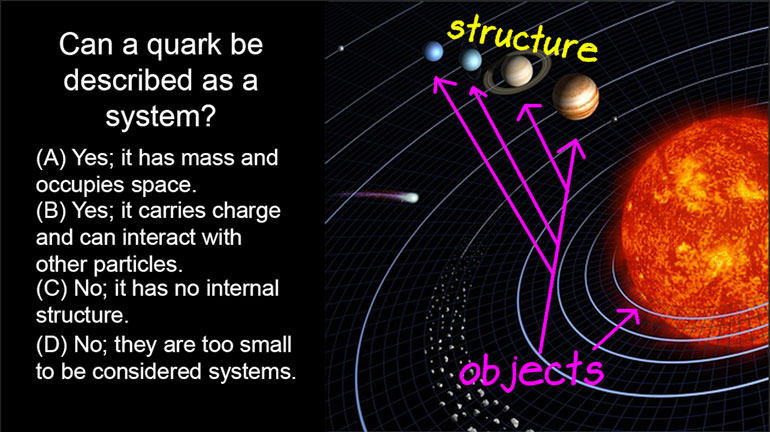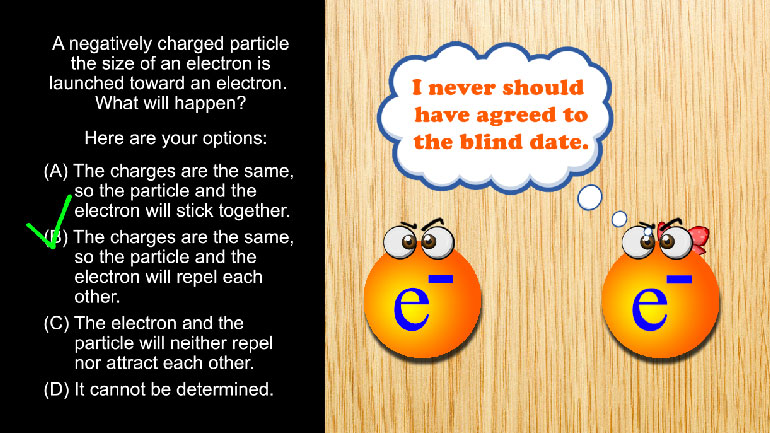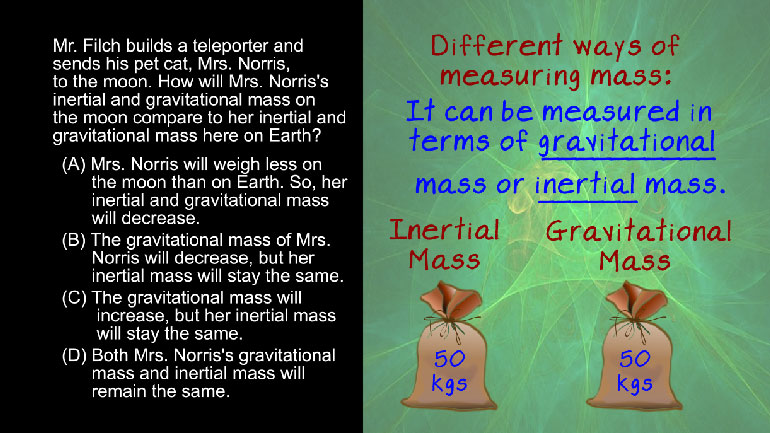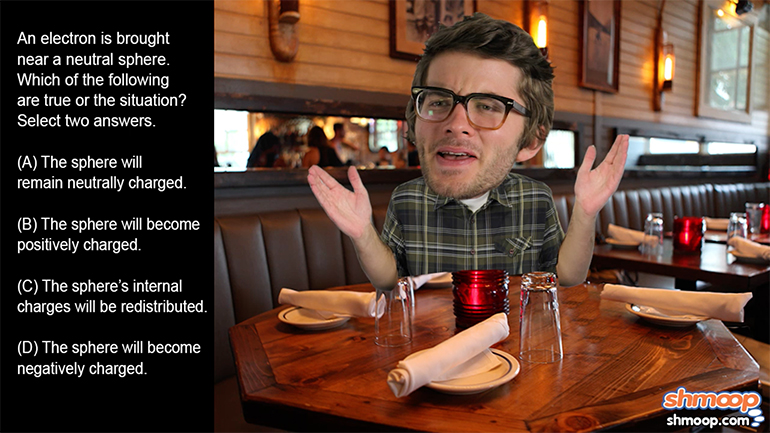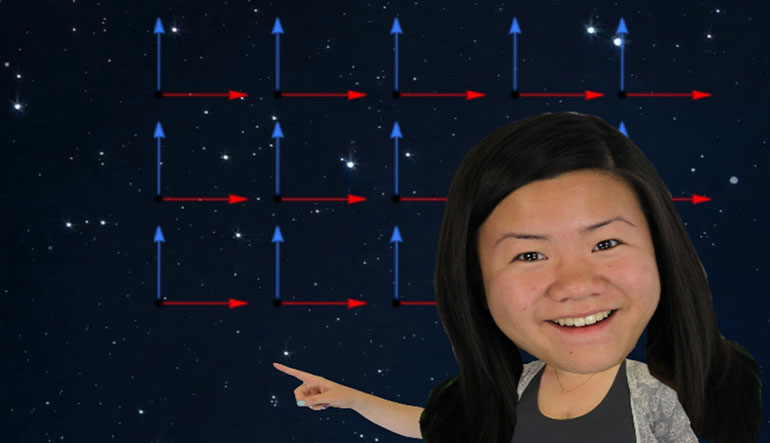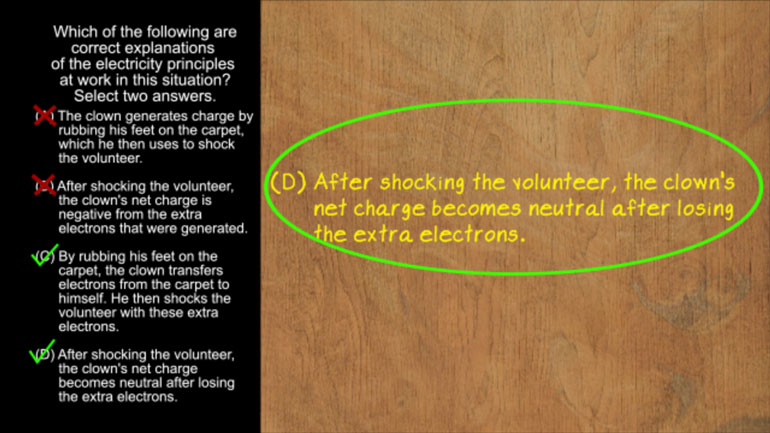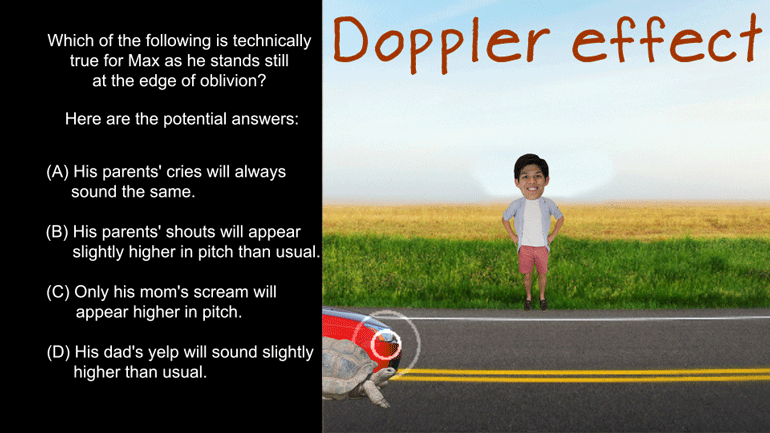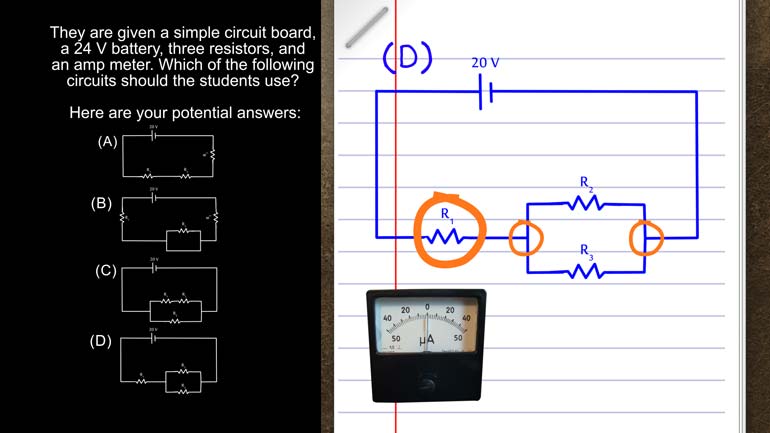ShmoopTube
Where Monty Python meets your 10th grade teacher.
Search Thousands of Shmoop Videos
Playlist AP® Physics 1: Properties of Objects and Systems 13 videos
AP Physics 1: Properties of Objects and Systems Drill 1, Problem 1. Which of the following could be considered as an object in the system?
AP Physics 1: 1.4 Properties of Objects and Systems. What is the difference between inertial and gravitational mass?
AP Physics 1: 1.5 Properties of Objects and Systems. Which of the following can be classified as a system?
AP Physics 1: 1.4 Properties of Objects and Systems 264 Views
Share It!
Description:
AP Physics 1: 1.4 Properties of Objects and Systems. What is the difference between inertial and gravitational mass?
Transcript
- 00:00
Thank you We sneak and here's your shmoop du jour
- 00:05
brought to you by inertia We find inertia to be
- 00:09
its strongest on saturday morning All right during your study
- 00:12
group your study buddy turns to you and says inertial
- 00:15
and gravitational mass both have the same value They must
Full Transcript
- 00:19
be the same thing right Well in order to prevent
- 00:23
him from failing the next physics quiz how should you
- 00:26
respond and hear the potential answers that All right we'll
- 00:34
get started Let's talk inertia way all know what gravity
- 00:38
is and no we're not talking about sandra bullock movie
- 00:40
although it was pretty cool and it did bank has
- 00:42
reconsider our dream of being an astronaut You may have
- 00:46
heard someone say a body at rest tends to stay
- 00:48
at rest and a body in motion tends to stay
- 00:51
in motion The person who first spoke these words was
- 00:54
yes sir isaac newton yet the same old guy who
- 00:57
took an apple to the head and figured out gravity
- 01:00
and he didn't say it exactly like that because they
- 01:02
spoken is funny way back then but that's the gist
- 01:05
of newton's first law of motion what this means is
- 01:08
that if you have a bowling ball sitting on a
- 01:10
table that ball isn't going to just start moving on
- 01:12
its own force needs to be applied to it to
- 01:15
make it move and once it's moving force needs to
- 01:18
be applied to make it stop moving or to make
- 01:21
it change direction that force can be friction or something
- 01:25
that can apply a direct force to stop the motion
- 01:28
So if we know what inertia is We can understand
- 01:30
inertial mass inertial mass is a measure of an object
- 01:34
tendency to resist change is in motion the mohr inertial
- 01:38
mass an object has the more it resists change like
- 01:41
your aunt who still thinks it's nineteen eighty six now
- 01:44
gravitational mass is calculated using an object gravitational weight but
- 01:49
don't confuse mass and weight They're not the same thing
- 01:53
mass doesn't change Sandra bullock has mass no matter where
- 01:58
she is but wait requires gravity that's why sandra can
- 02:02
be weightless in space she's not being pulled down by
- 02:05
the earth's gravitational force or by george clooney to calculate
- 02:08
an object gravitational mass We need to know the objects
- 02:12
weight and the force of gravity So when we put
- 02:15
all this knowledge together we see that the correct answer
- 02:18
is option A inertia refers to an objects resistance to
- 02:22
change while the gravitational mass is the mass calculated from
- 02:26
an object gravitational weight option b is wrong because the
- 02:30
values aren't different and objects inertial mass is the same
- 02:34
as its gravitational mass differences just in how they're measured
- 02:38
see gets it wrong because mass never refers to volumes
- 02:41
plus uses the definition of inertial master To find gravitational
- 02:47
and option d is wrong because the formula used to
- 02:49
calculate the types of masses is the same So if
- 02:52
inertial mass and gravitational masters equal to each other why
- 02:55
do we need to know the diff Well it's Because
- 02:58
they let us describe mass in different ways And that
- 03:00
lets us think about mass in different ways Being able
- 03:03
to think about things in different ways is always helpful
- 03:06
in physics or well any other branch of science and
- 03:08
know our inertial mass doesn't quadruple on those saturday mornings
- 03:12
Just
Related Videos
AP Physics 1: 2.5 Changes and Conservation Law. At what point(s) in this situation is energy lost in any form?
AP Physics 1: 1.4 Waves. Which of the following is technically true for Max as he stands at the edge of oblivion?
AP Physics 1: 1.4 Changes and Conservation Laws. Find the current across R2.
AP Physics 1: 2.4 Changes and Conservation Laws. Which of the following circuits should the students use?
AP Physics 1: 1.5 Waves. What can possibly occur when the two waves reach each other?
